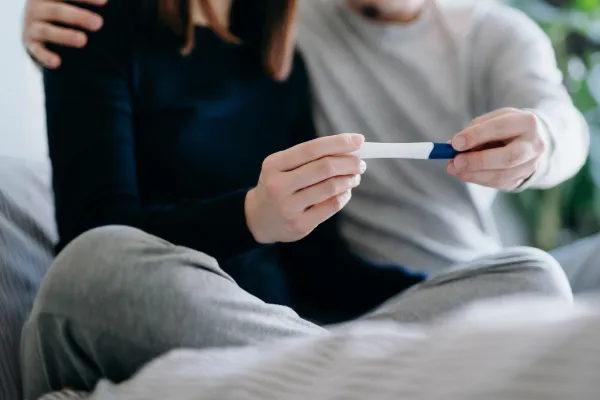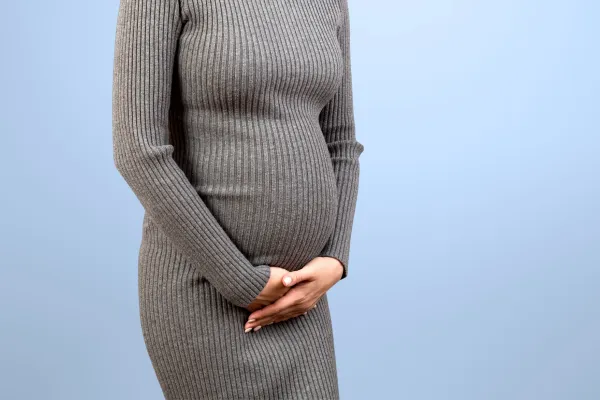Topics
Infertility is a complicated and delicate issue impacting many women around the world. Knowing the possible causes of infertility can offer couples trying for babies some clarity and optimism. One of Malaysia’s top healthcare providers, Gleneagles Hospitals, is committed to helping women through this rocky journey. This article dives into the many causes of infertility in women, how important lifestyle choices are, and the available ways to aid women in overcoming these issues.
Common Causes of Female Infertility
Infertility in women can occur due to some medical and environmental factors. Some of the most common causes include:
Ovulatory Disorders
The process of releasing an egg from the ovary is called ovulation. If ovulation is inconsistent or does not happen at all, pregnancy cannot occur. Conditions such as polycystic ovary syndrome (PCOS), hormonal imbalances, and thyroid disorders are constantly blamed for ovulatory dysfunction. PCOS impacts up to 10% of women of reproductive age and can make it more difficult to get pregnant.
Blocked Fallopian Tubes
The fallopian tubes are important in the fertilisation process. Sperm cannot travel to the egg if the tubes are blocked. Fallopian tube damage is regularly caused by pelvic inflammatory disease (PID), endometriosis, or past surgeries in the pelvic area.
Age-Related Factors
Women’s fertility declines over time as they grow older, specifically after 35. The amount and quality of a woman’s eggs decline over time, making it more difficult to get pregnant. Additionally, the risk of older women having a miscarriage or chromosomal abnormalities in their children may increase. This is a notable worry for women who postpone childbearing till later in life.
Endometriosis
This condition happens when the tissue that usually lines within the uterus grows outside of it, causing one to feel pain, inflammation, and potential scarring in the fallopian tubes and ovaries. Endometriosis impacts around 1 in 10 women of reproductive age and is a main cause of infertility.
Lifestyle Affects Female Fertility
Apart from medical factors, lifestyle choices can notably affect a woman’s fertility. Some habits and conditions can disrupt reproductive health, causing challenges in getting pregnant. Main lifestyle factors include:
Diet and Nutrition
Diet can directly affect a woman’s fertility. Having a balanced diet abundant in vitamins, minerals, and healthy fats supports general reproductive health. Ovulation can be disrupted due to nutrient deficiencies in folate, vitamin D, and iron, while a diet rich in processed foods, refined sugars, and trans fats is contributory to hormonal imbalances. Women trying for a baby should target a diet full of fruits, vegetables, whole grains, lean proteins, and healthy fats found in foods like olive oil, avocado, and nuts.
Stress and Mental Health
Chronic stress can notably impact hormone levels, making it challenging for a woman to ovulate frequently. Elevated levels of stress may disrupt the main hormone production, such as cortisol and progesterone, which are essential for reproduction. Mental health conditions such as anxiety and depression can also interfere with a woman’s menstrual cycle, resulting in infertility.
Excessive Weight or Low Body Weight
Being obese or underweight can impact a woman’s hormonal balance and ovulation. Being overweight elevates the risk of conditions such as PCOS, which is connected to infertility. On the contrary, being underweight can cause a lack of ovulation because of not having enough body fat, which is essential for the production of reproductive hormones. Keeping a healthy weight within the recommended body mass index (BMI) range is important for reproductive health.
Age Plays a Role in Female Fertility
Age is one of the most crucial factors influencing fertility in women. Fertility in women slowly declines as they age, specifically after 35. By 40, the chances of women getting pregnant drop naturally. This is mainly due to a drop in the number and egg quality. Additionally, older women have a higher likelihood of experiencing health conditions such as fibroids or diminished ovarian reserve, which can complicate conception further.
Women past 35 who are finding it difficult to conceive can seek medical help from fertility clinics in Malaysia, such as Gleneagles Hospitals, that can offer valuable support. Fertility treatments such as in-vitro fertilisation (IVF), egg freezing, and other assisted reproductive technologies can notably elevate pregnancy chances. In addition to this, women past 40 may be recommended to consider egg or embryo donation as part of their treatment plan. It is crucial for women to understand that although age plays a notable role, many women can get pregnant later on in life because of advancements in fertility treatments.
FAQs about Female Infertility
1. Can infertility in women be caused by stress?
Yes, stress can interfere with the sensitive balance of hormones that regulate ovulation, possibly leading to challenges in getting pregnant.
2. What is the ideal age for a woman to start trying for pregnancy?
The best age for women to start trying for pregnancy is in their 20s to early 30s, when fertility is at its highest level. However, many women successfully get pregnant in their late 30s and early 40s with the aid of fertility treatments.
3. Is IVF the only way for women who have infertility?
No, IVF is just one of the few options available. Depending on the infertility cause, women may also look into treatments like IUI, medication to induce ovulation, or lifestyle adjustments to improve fertility.
4. How might fertility be affected by diet?
A healthy and balanced diet is abundant in important nutrients, hormonal balance, and reproductive health. A deficiency in nutrients can inhibit ovulation, while a diet rich in processed foods and unhealthy fats can weaken fertility.
5. What are the signs indicating a woman’s infertility?
Irregular or missed menstrual periods, pain during intercourse, pelvic pain, or having trouble getting pregnant after a year of trying are common infertility signs. If you have any of these symptoms, it is recommended to consult a specialist at a fertility clinic.
Schedule an Appointment at Gleneagles Hospitals
Infertility can be a challenging and emotional circumstance for women. However, there may be hope in the future after understanding the causes and available treatments for infertility. If you struggle with infertility or are worried about your fertility health, Gleneagles Hospitals are here to help you.
Our professional team of fertility specialists provides various diagnostic services and treatments tailored to your individual needs. Book an appointment with Gleneagles Hospitals today and take the first step toward growing your family. Alternatively, you can download the MyHealth360 application in Google Play Store or Apple App Store.








